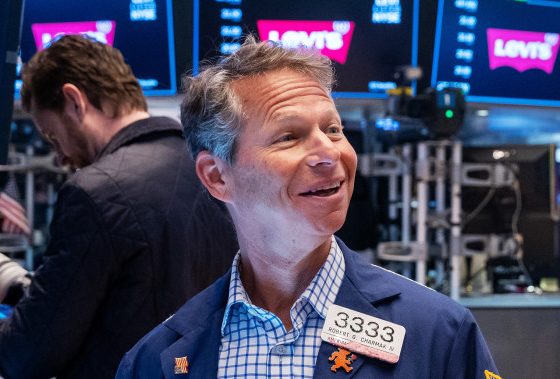Under the leadership of Chair Gary Gensler, the Securities and Exchange Commission (SEC) has been taking a firm stance against the cryptocurrency industry, focusing heavily on crypto regulation with lawsuits against various crypto firms.
This “Enforcement-First” approach has led to multiple legal battles and significant scrutiny within the industry. However, with the upcoming presidential election, the regulatory landscape in the U.S. may experience shifts, potentially altering how the crypto sector is managed in the future.
In an interview with Cryptonews.com, Patrick Daugherty, a partner at Foley & Lardner LLP who leads the firm’s digital assets practice, expressed his belief that there will be a favorable change in U.S. crypto regulation post-elections.
SEC’s Regulatory Approach to Crypto
Daugherty criticized the SEC’s current strategy, emphasizing the need for clear rules and regulations instead of relying predominantly on enforcement actions.
“You can’t just always sue people without telling them what the law is first,” he stated.
“I think the law requires a certain amount of notice to industry participants about what the rules are and what it is they’re supposed to do and not do before you sue them.”
He argued that this enforcement-first approach creates uncertainty within the industry, and the SEC needs to provide clearer guidelines.
Daugherty highlighted the challenges faced by industry participants under the current regulatory regime, noting the importance of having a balanced approach that supports both regulation and innovation. He noted:
“Most people in the bar think that the crypto industry is being singled out for this. We do not see this happening in other industries. Not just now, but really ever.”
“I think it is best for an agency to use its power to make rules and regulations in a thoughtful manner with notice and hearings and comment letters and interpretations and all these usual rudiments of lawmaking rather than investigations and lawsuits as a primary mechanism,” added Daugherty.
Impact of Political Landscape on Crypto Regulation
Daugherty discussed the possibilities of the upcoming election, including former President Donald Trump’s shift in stance towards crypto. Initially opposed, Trump has now expressed support, promising no Central Bank Digital Currencies (CBDCs) and advocating for the right to self-custody.
“I’m hopeful that things will get better after the fall elections, and they will certainly get better for the crypto industry if Trump is elected,” said Daugherty.
He also predicted potential positive changes if Biden is re-elected. He anticipated Biden may appoint a new SEC Chair, who could be more favorable towards crypto, shifting away from the heavy enforcement seen under Gensler.
“That’s what you do in a second term – you turn over the chairmen of your agencies,” explained Daugherty. He believed that the new person “will almost certainly be more favorable to crypto” than the solidly opposed Gary Gensler.
“You probably can’t get more opposed to it than he is. So it’s going to go from better to much better after the elections,” he said.
Jurisdictional Issues Between SEC and CFTC
Patrick Daugherty further elaborated on the ongoing jurisdictional conflicts between the Commission and the Commodity Futures Trading Commission (CFTC) regarding the classification of digital assets.
As the SEC is in a legal battle with Coinbase and trying to categorize some cryptos as securities, the CFTC argues that cryptos are mere digital commodities and therefore should fall under its supervision.
“I don’t think that they fight with each other as much as would seem to be the case. I think each of them is zealous about its own jurisdiction and about its own views of its jurisdiction,” said Daugherty, the former SEC lawyer during Ronald Reagan’s term.
“CFTC also brings cases, make no mistake about it. Some of them are big cases. But it is easier for the industry to work with the CFTC than it is with the SEC and everyone acknowledges that,” he added.
Daugherty illustrated that it was the tension between agencies tasked with crypto regulation and congressional committees holding the Congress back, keeping it away from clarifying the line between a security and a non-security commodity.
“It’s uniquely an American problem because in every other advanced economy, there’s only one regulator for both asset classes. Here we have two, for two separate asset classes,” stated Daugherty.
“So of course the regulators are going to fight over jurisdiction. That’s kind of what they do.”
The post Patrick Daugherty Sees Positive Shift in Crypto Regulation Post-Elections appeared first on Cryptonews.


